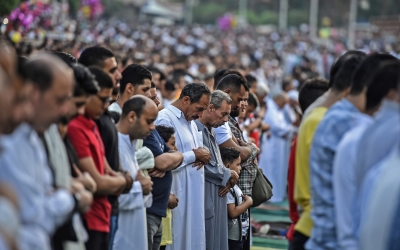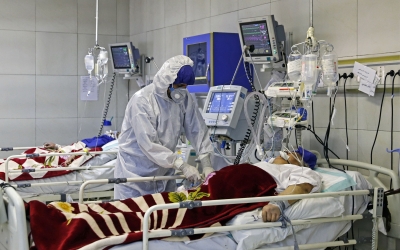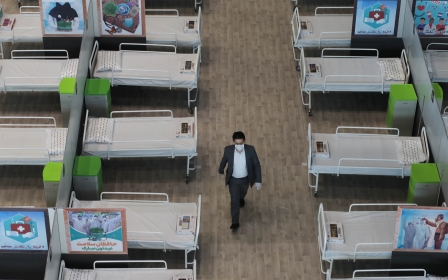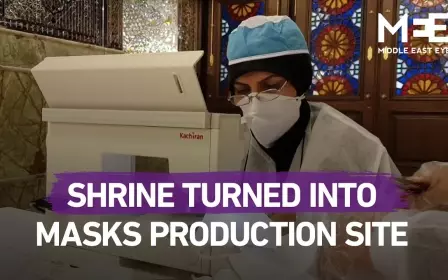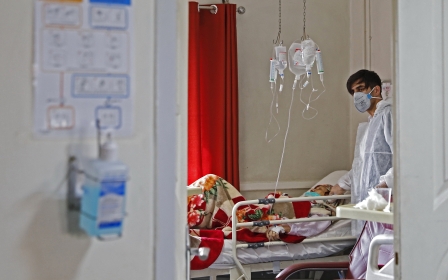Iran may stop mass gatherings in Ramadan to slow coronavirus spread

Iran's Supreme Leader said mass gatherings, including congregational prayers, may not be allowed during the Muslim holy month of Ramadan as part of efforts to slow the spread of the novel coronavirus.
In a televised speech on Thursday, Ayatollah Ali Khamenei said mass gatherings would most likely be banned, and suggested Muslims find other ways to channel their feelings of togetherness during the holy month.
"In the absence of public gatherings in the Ramadan month, including praying, speeches and so on, that we are this year deprived of them, we should create the same sense in our lonesomeness," the 80-year-old said.
Iran has suffered one of the world's worst outbreaks of the virus, recording at least 67,000 cases.
But earlier this week, Hamid Souri, a member of Iran's national coronavirus task force, said about half a million people are likely to have been infected.
According to a government tally, at least 4,000 coronavirus-related deaths have been recorded.
On Tuesday, the World Health Organisation's (WHO) East Mediterranean Regional Office said Iran's government appeared to have slowed down the spread of the disease and "flattened the curve."
But with Ramadan set to start at the end of this month, it is unlikely Tehran will have curbed the virus enough to allow mass gathering for the holy month, which is celebrated with dawn to sunset fasting and an increase in various religious gatherings and group prayers.
Instead of gathering in groups to worship, Khamenei urged worshippers to pray in their homes during the month.
Both Sunni and Shia Muslims are typically encouraged to pray communally, especially during Ramadan.
US doubles-down on pressure campaign
Also on Wednesday, Iranian President Hassan Rouhani ordered the country's economy to slowly begin opening back up, starting Saturday.
The Islamic Republic's economy was already suffering under intense US sanctions after President Donald Trump unilaterally withdrew from the Joint Comprehensive Plan of Action (JCPOA), otherwise known as the Iran nuclear deal.
According to Human Rights Watch, the sanctions devastated Iran's flagging health-care system, hindering the ability for ordinary Iranians to access health care.
Sanctions have also more broadly impacted Iranians by crippling private businesses and forcing the value of Iran's currency, the rial, to plummet.
Earlier this week, Washington said it planned to block Iran's request for a $5bn emergency loan from the International Monetary Fund (IMF).
Tehran said it was seeking the loan as a way to boost its response to the country's coronavirus outbreak, but the US claimed that the funds would be used to support the Iranian government's economy and its regional goals.
"The world's leading state sponsor of terrorism is seeking cash to fund its adventurism abroad, not to buy medicine for Iranians," an official in the Trump administration told Middle East Eye on Wednesday.
The US, which effectively holds a veto at the IMF, said if it were to allow Iran to tap IMF coffers, Tehran would also divert money to help its crippled economy recover from ongoing US sanctions.
During his speech on Thursday, Khamenei made a point to remind Iranians that the US is the main enemy of Iran, mocking Americans for hoarding toilet paper and firearms at the start of the Covid-19 crisis.
"The problem of corona should not make us ignorant about the plots by our enemies and arrogant powers," he said.
Middle East Eye delivers independent and unrivalled coverage and analysis of the Middle East, North Africa and beyond. To learn more about republishing this content and the associated fees, please fill out this form. More about MEE can be found here.


